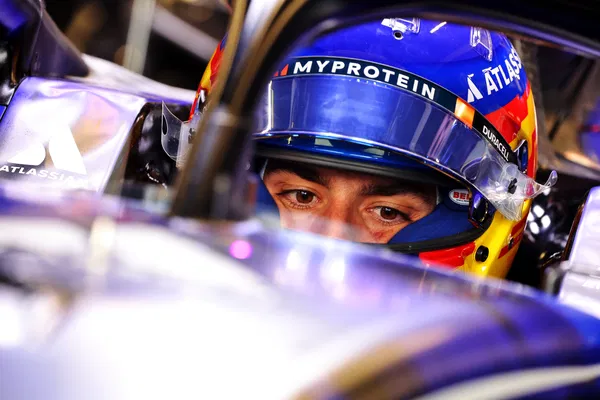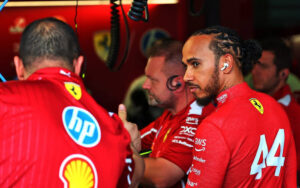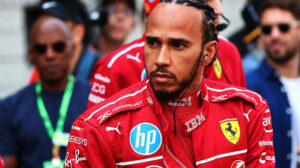BREAKING: Carlos Sainz Denounces FIA’s Overzealous Swearing Clampdown saying…read more

BREAKING: Carlos Sainz Denounces FIA’s Overzealous Swearing Clampdown saying…read more
In a strongly worded interview at the Williams FW47 launch at Silverstone, Formula 1 driver Carlos Sainz has criticized the FIA’s newly enforced policy on swearing, calling the measures “excessive” and ill-suited to the high-pressure nature of racing. Sainz, now racing for Williams, argues that while drivers must exercise decorum in formal media settings, the raw, unscripted language on team radio is an authentic expression of the adrenaline and emotion experienced during races.
Sainz explained, “In press conferences and other public appearances, of course, we should be well-mannered – after all, millions of families are watching. But behind the wheel, when you’re fighting at 300 km/h with split-second decisions, that passion and intensity sometimes come out in the form of a swear word. That’s part of who we are as competitors.” He believes that clamping down on such language strips away an element of the sport’s authenticity that fans appreciate and that helps convey the real challenges drivers face on the track.
The new FIA guidelines, unveiled last month as part of a broader effort to modernize Formula 1’s image and make it more family-friendly, set out a sliding scale of penalties for “inappropriate language” and misconduct. Under these rules, a driver’s first offence can incur fines up to €40,000—with steeper penalties, including potential race bans and championship points deductions, imposed on repeat offenders. Sainz contends that such a rigid system fails to consider the context in which these expletives are uttered, especially when they are a byproduct of the extreme conditions of a Grand Prix.
Critics within the paddock argue that while professionalism is important in public forums, the spontaneous nature of team radio communications offers an unfiltered glimpse into the pressure and emotion inherent in high-speed racing. “There’s a natural honesty in hearing a driver’s real feelings on the radio,” Sainz noted. “If we sanitize that completely, we risk losing an essential part of the sport’s character.”
The clampdown comes on the heels of previous incidents that have stirred controversy among drivers and fans alike. Last season, high-profile cases involving drivers like Max Verstappen and Charles Leclerc—who were penalized for swearing during press conferences—ignited a debate about the appropriateness of imposing such strict measures on expressions of frustration. Even in other FIA-sanctioned series, such as the World Rally Championship, penalties have been meted out for similar breaches, though with different multipliers depending on the competition level.
Sainz was particularly critical of the FIA’s approach, emphasizing that drivers were not consulted on these changes and that the new rules could dampen the natural spontaneity that makes F1 so engaging. “We are adults,” he stated firmly. “We understand the need to show respect in front of the media, but when you’re in the cockpit, every word is a reflection of the raw pressure you’re under. Fining us for that is, in my opinion, overkill.”
Supporters of the policy argue that a cleaner public image will help attract broader audiences and sponsors, and that the guidelines are in line with similar rules enforced by other major international sports bodies. The FIA, led by President Mohammed Ben Sulayem, maintains that these measures are necessary to uphold a standard of conduct befitting a global sporting spectacle. “The goal is to protect the sport’s image and ensure that our communications reflect a level of professionalism that all audiences can appreciate,” an FIA spokesperson said.
However, Sainz and several other drivers fear that this emphasis on “moral injury” and excessive control could alienate fans who relish the authentic, if sometimes unpolished, nature of F1 communications. They argue that such policies might lead to a sanitized version of the sport—one that loses the raw emotional displays that are often a catalyst for memorable racing moments.
Moreover, the Grand Prix Drivers’ Association has joined the chorus of criticism, demanding greater transparency regarding the allocation of fines and questioning whether monetary penalties are the appropriate tool for disciplining drivers. “It’s about trust and respect,” Sainz remarked. “We want to be held accountable, but we also want our genuine passion to shine through, because that’s what makes F1 exciting.”
As the 2025 season approaches, the debate over the FIA’s swearing policy is likely to intensify. For now, Sainz’s outspoken criticism has ignited a broader discussion within the racing community about the balance between maintaining professionalism and preserving the authentic, unfiltered emotions that are an intrinsic part of high-stakes motorsport.
Only time will tell if the FIA will adjust its guidelines in response to these mounting concerns. In the meantime, drivers like Carlos Sainz remain resolute in their belief that a bit of raw language is not only inevitable but also essential to capturing the trues pirit of Formula 1.




